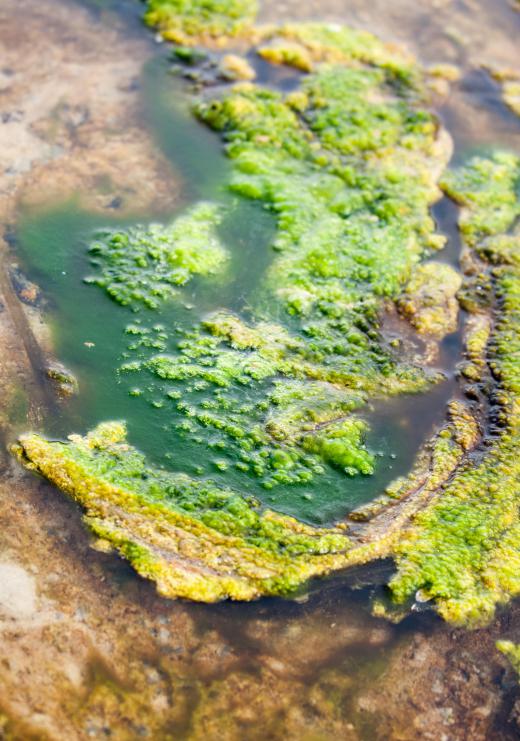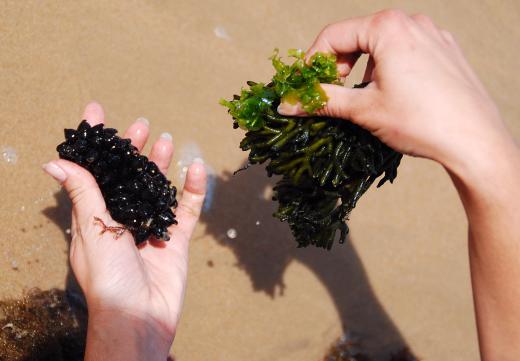It is in fact possible to make oil from algae, although the cost of production can sometimes be quite high, when compared with the cost of conventional oil production. The advantage of oil from algae, of course, is that algae is a renewable resource, making biofuels from algae very close to being carbon neutral, and as the algae grows, it actually contributes in a positive way to the environment, filtering out toxins and generating oxygen.
Research on making oil from algae began in the 1990s, but efforts were largely abandoned, due to lack of interest as a result of relatively low oil prices, and the high cost of the research equipment needed. A little over a decade later, however, scientists became interested in making oil from algae again, spurred by rising fuel prices and concerns over the world's oil supply. As a result, several companies invested in the technology and know-how needed to create oil from algae.

In some algae species, lipids make up over 50% of the algae, by weight, especially when the algae is stressed and stimulated with specific fertilizers. When subjected to extraction, this oil is chemically comparable to light sweet crude, a form of oil which can be refined into a wide variety of products, including biofuels and plastics. Light sweet crude is often in very high demand, as it can be used to produce a range of fuels including kerosene and diesel.

Per acre, algae can generate an exponentially higher yield of oil than crops like corn and soy, and algae can be grown in a variety of environments and on otherwise unusable land, ensuring that resources which could be used to grow food continue to be dedicated to food production. Making oil from algae is also made vastly more efficient with vertical growth columns, allowing companies to grow a huge volume of algae in a very small space, and systems can also be designed to utilize water and resources very efficiently.

While the cost of making oil from algae was prohibitive as of 2008, the technology was clearly progressing rapidly, and many scientists hoped to see major developments within five to 10 years. Many governments have also supported alternative fuel initiatives including the drive to create oil from algae, and this investment could speed the process considerably.
Ever since she began contributing to the site several years ago, Mary has embraced the exciting challenge of being a About Mechanics researcher and writer. Mary has a liberal arts degree from Goddard College and spends her free time reading, cooking, and exploring the great outdoors.

